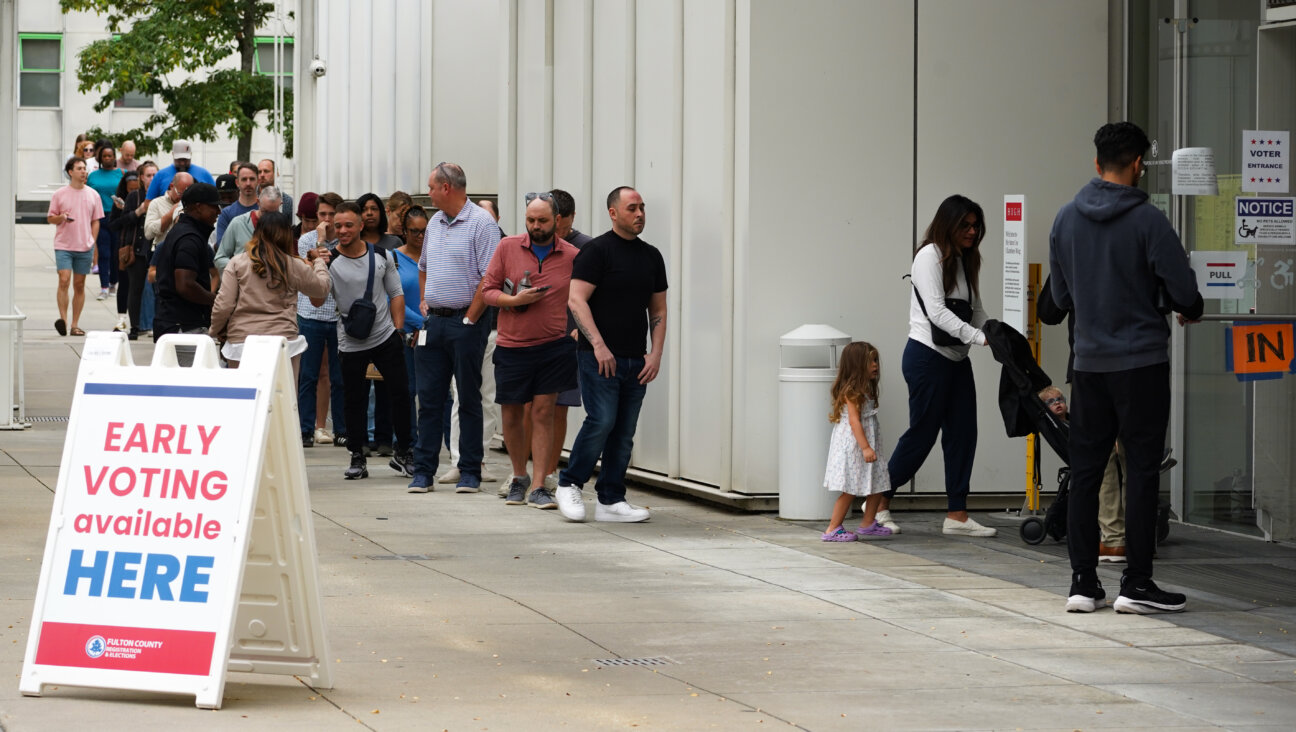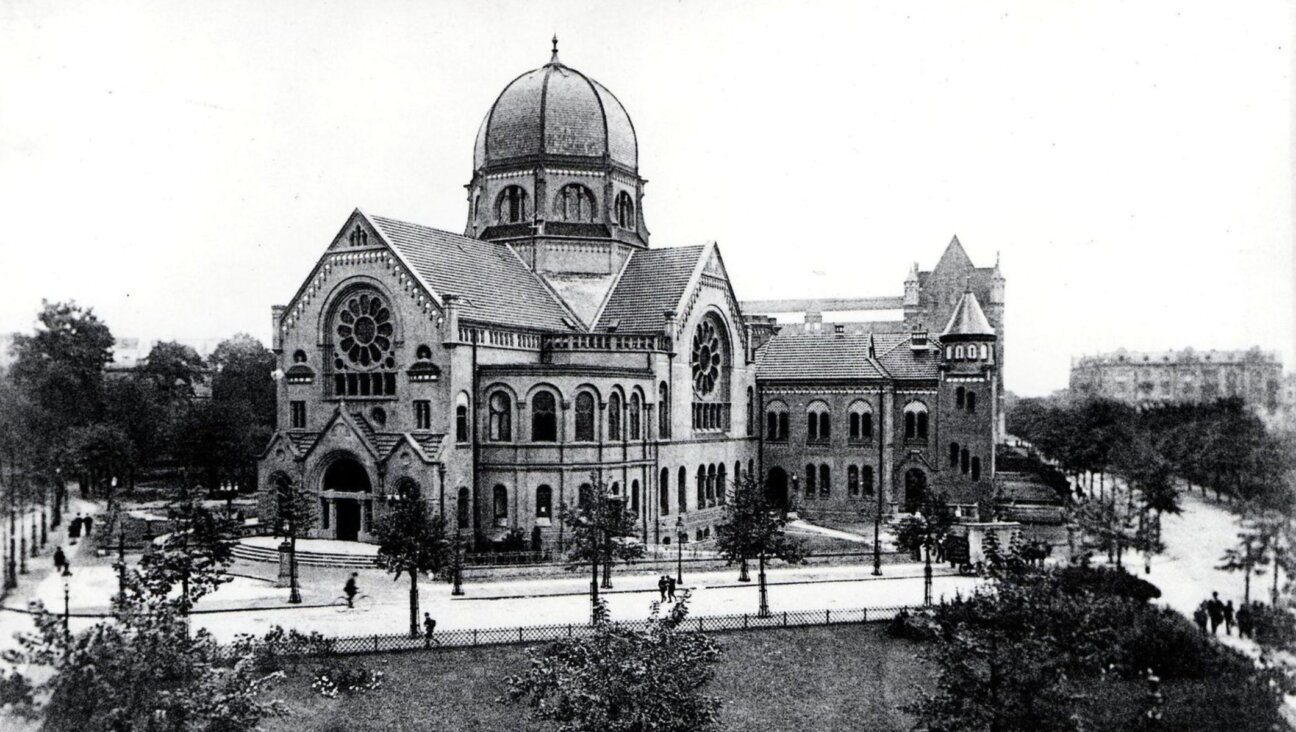The world is in pain this Passover. These rabbis have wisdom to help us embrace it.

Image by wikimedia commons
(JTA) — This Passover, redemption feels so close — yet so far away. Nearly 50 million Americans have been fully vaccinated against COVID-19; at least 543,000 have died from the disease. Some of us are able to safely gather with others for the Seder this year; many of us are still separated from loved ones.
I was thinking about this tension recently as I read a new collection of Passover essays and advice by and for Jewish women, collected by Bari Mitzmann, a Las Vegas mother and Orthodox Jew with a large Instagram following.
The collection is called “HaKol B’Seder,” which can be translated from Hebrew to mean both “Everything in the Seder” and “Everything is Fine,” and this line by Alaya Hertzel, an influential Orthodox life and family coach in Los Angeles, stood out to me:
“It’s time to stop telling people to put their pain away over the holidays and start inviting them to feel the pain brought about by the Holiday itself… Pain demands to be felt and perhaps this is the year we finally free ourselves to feel it.”
So often, I spend most of Passover focusing on ritual and planning, pushing any discomfort or lack of emotional connection out of mind. This year, I’m thinking about doing the opposite.
I asked several rabbis to reflect on a specific part of the Passover seder that feels different this year, after a full year of plague. In their own ways, all wrote about pain.
Mitzmann proposes that the seder is really a multi-sensory guided meditation. ”Done right,” she writes, “we are gifted with catharsis and achieve an emotional and philosophical understanding of God’s role in our lives.”
At the seder, I’ll channel these rabbis’ responses in the service of achieving greater feeling, connection and release.
What specific text or element of the Haggadah feels different after a year of pandemic?
“When we open the door for Elijah and recite ‘pour out your wrath,’ we think of God punishing those who have hurt or killed our people in ages past.
“During the pandemic we feared opening the door because the danger lurked without, and we didn’t want to give it a way in. We understand anew how being able to open your door is itself a kind of redemption. Welcoming the world into your home is a special sweetness that we have yearned for and missed.
“How blessed it will be when we can open our door for Elijah, and not be afraid.”
— Rabbi David Wolpe, Sinai Temple, Los Angeles
“This year’s seder, more than any in our lifetimes, will be in direct conversation with the previous year’s. We will be enjoying Pesach 2021 while thinking about Pesach 2020 (and while actively dreaming of Pesach 2022). No moment in the Haggadah better expresses the arduous journey from last Pesach, and the aspiration for a peaceful path to next Pesach, than one remarkable line in the Maggid’s concluding blessing:
Blessed are you, Hashem our God, Sovereign of the Universe … who has helped us make it to this night on which we eat Matzah and Maror … So may [You] help us make it to future holidays and festivals, may they come to us with peace.
“This blessing opens by thanking God for the distant past’s Exodus from Egypt (not exactly a shock!) and ends (again, no great surprise) with a lengthy prayer for the messianic redemption awaiting us in the eventual future.
“But for two short clauses the timeline suddenly shrinks, and the scale of Jewish history moves not in centuries or generations, but from one year to the next: We bless God for bringing us from last Pesach to today, and we pray to God to guide us from Pesach of this year to Pesach of next.
“Most years, I barely notice these words, because I take for granted that I ‘made it’ to Pesach. The Seder is for praising God for the miracles of leaving Egypt, not the wonders of making it to my cousins’ house. nd of all the bright hopes I have in mind for the future, doing a Seder once again, one year from now, isn’t very high on my list (especially while wrapping up Maggid!).
“But this coming Pesach, my feelings are different. I’m thinking of the many we lost to the pandemic and who will not make it to this year’s (or last year’s) seder. I’m thinking of all those who, due to heroic interventions by medical professionals, will arrive in peace to this upcoming holiday. I’m thinking of individuals in my community who finally received vaccines and now, after a year, will be able to celebrate with their families not just the Exodus from Egypt, but their long-awaited exit from isolation.
“Every seder marks an experience that began about 3,500 years ago; but this year’s Seder will also mark an experience that began about one year ago. While most of the Haggadah helps us dive into the former, it is the blessing at the end of Maggid that provides an opportunity to reflect on the latter.”
— Rabbi Ben Greenfield, The Greenpoint Shul, New York City
“‘Next year in Jerusalem.’
“By design, the Seder is unfinished. The conclusion, as it were, is an aspirational one. From our vantage point in the wilderness, we look forward to the Promised Land. From our vantage point at our own seder tables, we look ahead with our own hopes and visions, both personal and communal. ‘Where will we be,’ the seder asks, ‘a year from now?’ And, is that where we want to be?
“While our tradition, and general life experience, often reminds us that nothing is guaranteed, this line feels particularly difficult this year. A year ago, we were just at the beginning of this pandemic life, jokingly (or not) posting our Zoom seder pictures with our #nextyearinperson tags. Only, for many of us, this year is still not in person, and far beyond the usual unknowns — life looks so different than we could or would have imagined. I wonder if this year, the yearning hope of ‘next year in Jerusalem’ seems unattainable at best, mocking at worst. I know that it will just hit different this year.
“Throughout this pandemic year, my colleague Rabbi Yoshi Zweiback has turned our community to the words of the prophet Zechariah, who described the Israelites as ‘asirei tikvah,’ prisoners of hope. We carry hope with us in the narrow places, we hold on to hope in the overwhelming expanse of the wilderness. We cling to hope in our darkest moments; legend teaches that the melody we know for ‘Ani Ma’Amin’ was created by Reb Azriel David Fastag, who sang out the words on a train to Treblinka. The words, based on Maimonides’ Declaration of Faith, proclaim our enduring belief in the messianic era, the world as it should be, ‘af al pi she-yitmameah’ — even though it tarries.
“‘Return to your fortress, you prisoners of hope,’ Zechariah demands. Hope, then, creates the walls that surround us; it is our protective armor. And so, as in years and millennia past, I will close my seder with the words ‘next year in Jerusalem.’ Even if I might struggle to imagine, even if I cannot see — I will close with these words of hope that next year, I will be different. We will be different. And, offering those as words of prayer, the world will be different too.”
— Rabbi Sari Laufer, Stephen Wise Temple, Los Angeles
A message from our CEO & publisher Rachel Fishman Feddersen

I hope you appreciated this article. Before you go, I’d like to ask you to please support the Forward’s award-winning, nonprofit journalism during this critical time.
At a time when other newsrooms are closing or cutting back, the Forward has removed its paywall and invested additional resources to report on the ground from Israel and around the U.S. on the impact of the war, rising antisemitism and polarized discourse.
Readers like you make it all possible. Support our work by becoming a Forward Member and connect with our journalism and your community.
— Rachel Fishman Feddersen, Publisher and CEO
























